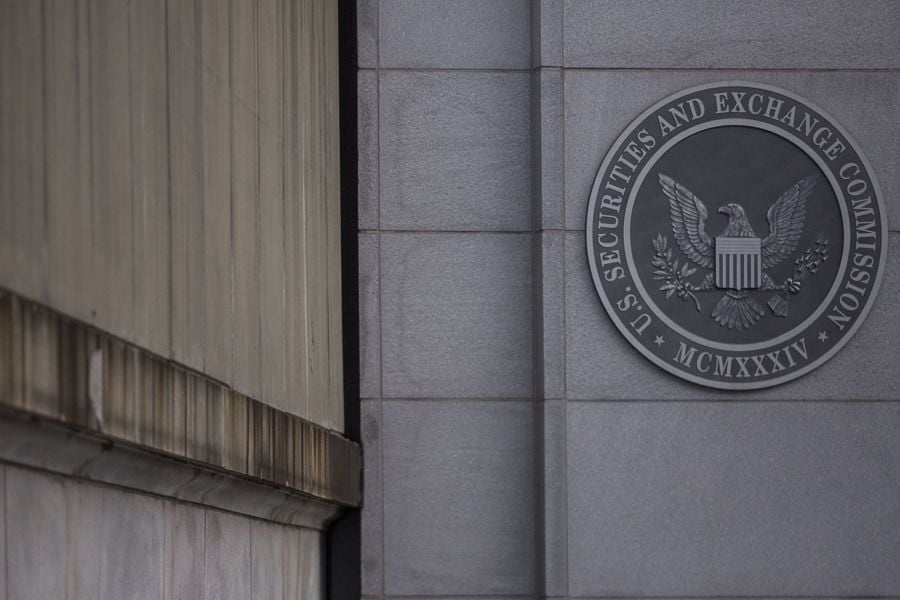

Financial industry representatives are pushing back against an SEC proposal that would impose new obligations on investment advisors who outsource some of their services.
In late October, the Securities and Exchange Commission released a proposal that would establish due diligence and monitoring requirements for advisors who hire a third party to perform a “covered function.” The proposal doesn’t define what services it covers, but they could include providing investment guidelines, portfolio management, advice models, custom indices, trading services and software, according to an SEC fact sheet.
In light of the increase in outsourcing, the SEC said it is concerned about potential investor harm if advisors don’t properly vet and monitor their service providers.
But trade associations representing investment advisors and the financial industry are blasting the proposal, saying it's superfluous because advisors’ fiduciary duty already requires them to ensure that outsourcing firms are acting in their clients’ best interests. Trade groups also assert that the measure will significantly increase advisors’ regulatory costs.
The Investment Adviser Association wants the SEC to scuttle the proposal.
“[W]e urge the Commission not to move forward with the proposal and instead consider alternative approaches to achieve its goals,” IAA general counsel Gail Bernstein and associate general counsel Dianne Descoteaux wrote in a Dec. 23 comment letter. “While we understand the Commission’s objectives, we strongly believe that the proposal is unnecessary and unwarranted. It will have sweeping implications for all advisers and their services providers and substantial negative consequences for smaller advisers and smaller service providers. The Commission has significantly underestimated the potential costs of the proposal, with little evidence of benefit.”
The deadline for public comments was last Tuesday. The agency has received about 90 letters. It will review the input and could modify the proposal before releasing a final version. The timeline is unclear.
The Investment Company Institute, which represents the mutual fund sector, also called on the SEC to withdraw the proposal.
““[T]he proposal includes requirements that are outside the SEC’s authority under the federal securities laws and the cost-benefit analysis is wholly inadequate,” ICI general counsel Susan Olson wrote in a Dec. 23 comment letter. “As a result, the SEC should not move forward on this proposal.”
The Securities Industry and Financial Markets Association said advisors’ fiduciary duty to their clients incorporates most outsourcing decisions and suggested that the SEC instead zero in on high-risk situations.
“Existing fiduciary principles are sufficient to regulate advisers’ use of service providers, and tailored guidance on specific topics may better achieve the Commission’s objectives,” SIFMA managing director and associate general counsel Melissa MacGregor and managing director Kevin Ehrlich wrote in a Dec. 23 comment letter.
John Gebauer, chief regulatory officer at COMPLY, a compliance consulting firm, warned of the proposal’s impact on small advisors.
“[T]he prohibitive costs of compliance would fall disproportionately on small and mid-sized advisers, who will then be compelled to make a Faustian bargain between committing the additional staffing and resources necessary to outsource tasks they are not well-equipped to perform in-house or committing additional staffing and resources to develop their own in-house expertise; either path would appear to increase the risks to clients,” Gebauer wrote in a letter last Tuesday.
The Institute for the Fiduciary Standard said the SEC should do more homework on outsourcing.
“[G]iven the growth of outsourced services, the Institute urges the Commission to conduct new research to obtain a better sense of the risks of increased reliance on these services and then bring together investment advisers to discuss this new research and what SEC actions can best address outsourced services,” Institute president Knut Rostad wrote in a letter last Tuesday.
The SEC did receive support for the proposal from state securities regulators, who applauded enhanced oversight of outsourcing.
“We agree that insufficient supervision of and disclosure regarding such service providers can leave clients insufficiently informed as to how their assets are being managed and protected, how their fees are being spent, and what value advisers are providing,” North American Securities Administrators Association president Andrew Hartnett wrote in a letter last Tuesday.

Rajesh Markan earlier this year pleaded guilty to one count of criminal fraud related to his sale of fake investments to 10 clients totaling $2.9 million.

From building trust to steering through emotions and responding to client challenges, new advisors need human skills to shape the future of the advice industry.

"The outcome is correct, but it's disappointing that FINRA had ample opportunity to investigate the merits of clients' allegations in these claims, including the testimony in the three investor arbitrations with hearings," Jeff Erez, a plaintiff's attorney representing a large portion of the Stifel clients, said.

Chair also praised the passage of stablecoin legislation this week.

Maridea Wealth Management's deal in Chicago, Illinois is its first after securing a strategic investment in April.
Orion's Tom Wilson on delivering coordinated, high-touch service in a world where returns alone no longer set you apart.
Barely a decade old, registered index-linked annuities have quickly surged in popularity, thanks to their unique blend of protection and growth potential—an appealing option for investors looking to chart a steadier course through today's choppy market waters, says Myles Lambert, Brighthouse Financial.
